Beacon Hill Roll Call: April 1 to April 5, 2024

The House gave initial approval to a measure that adds a seven-day license suspension to the current $250 fine for not stopping for a school bus with flashing lights as children get on and off the bus. METRO CREATIVE GRAPHICS
|
Published: 04-12-2024 11:04 AM
Modified: 04-12-2024 11:04 AM |
Beacon Hill Roll Call records local representatives’ votes on roll calls from the week of April 1 to April 5. There were no roll calls in the Senate last week.
The House, 155-0, approved and sent to the Senate a bill that includes authorizing $200 million in one-time funding for the maintenance and repair of roads and bridges across the state. The $375 million package, a bond bill under which the funding would be borrowed by the state through the sale of bonds, also includes $175 million for transportation-related grant programs.
“Providing funding for critical infrastructure projects through investments in the commonwealth’s public transportation, roads and bridges is one of the most important responsibilities that we have as members of the Legislature,” said House Speaker Ron Mariano, D-Quincy. “I’m proud of the support for regional infrastructure that this legislation provides, and of the funding that it allocates for the purchasing of electric vehicles by transit authorities.”
“The Legislature continues to be responsive to the transportation needs of our towns and cities,” said Rep. Bill Straus, D-Mattapoisett, House chair of the Transportation Committee. “I am pleased to support this important piece of legislation, which provides more tools for towns to tackle their project backlog in time for the new fiscal year starting in July.”
Adam Chapdelaine, CEO of the Massachusetts Municipal Association, did not respond to repeated requests by Beacon Hill Roll Call asking him if he supports the funding as is or would like to have seen it increased. Ex-CEO Geoff Beckwith often urged the House and Senate to substantially increase the amount of funding.
A “Yes” vote is for the $375 million package.
Rep. Natalie Blais — Yes
Rep. Aaron Saunders — Yes
Article continues after...
Yesterday's Most Read Articles
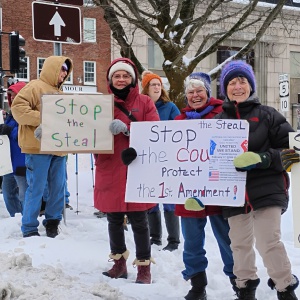 Local ‘Hands Off!’ standouts planned as part of national effort
Local ‘Hands Off!’ standouts planned as part of national effort
 Incandescent Brewing now open in Bernardston
Incandescent Brewing now open in Bernardston
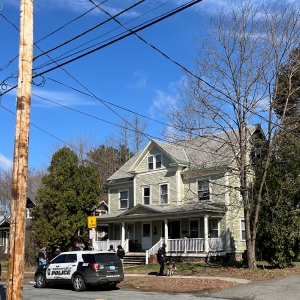 Two arrested on drug trafficking charges in Greenfield
Two arrested on drug trafficking charges in Greenfield
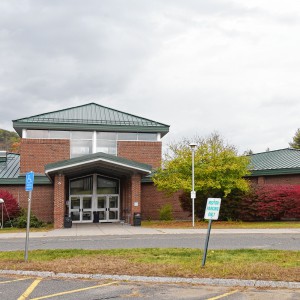 Berkshire DA says no crime occurred in student-officer relationship at Mohawk Trail
Berkshire DA says no crime occurred in student-officer relationship at Mohawk Trail
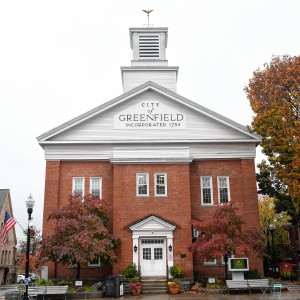 Proposed ordinance would make Greenfield a ‘sanctuary city’ for trans, gender-diverse people
Proposed ordinance would make Greenfield a ‘sanctuary city’ for trans, gender-diverse people
 Sounds Local: A legend pays tribute to an icon: Seven-time Grammy-nominated Joan Osborne brings Bob Dylan repertoire to Shea Theater
Sounds Local: A legend pays tribute to an icon: Seven-time Grammy-nominated Joan Osborne brings Bob Dylan repertoire to Shea Theater
Rep. Susannah Whipps — Yes
The House, 155-0, approved and sent to the Senate a bill that would modernize and remove archaic language in state laws to reflect the evolution of terminology relating to people with disabilities.
Changes include replacing “handicapped persons” with “persons with disabilities,” replacing “the mentally retarded” with “persons with an intellectual disability,” replacing “retarded children” with “children with an intellectual disability” and replacing “disabled American veterans” with “American veterans with disabilities.”
Supporters said the primary objective of the bill is to identify and eliminate outdated, archaic language from the General Laws of Massachusetts and replace it with more respectful, person-first language. They noted that once the archaic language was found, they contacted the relevant state agency or office to confirm that the bill would have no unforeseen consequences, such as impacting funding or access to services.
“With the passage of this legislation, the commonwealth is taking a critical step toward fostering inclusivity and upholding our long-held principles of dignity and respect for all who call the commonwealth home,” said Rep. Mike Finn, D-West Springfield, a lead sponsor of the bill. “We can all celebrate that it is long past time for the commonwealth to update its General Laws, ensuring that no individual is subjected to negative and harmful language.”
“Removing out-of-date, antiquated and offensive language from the Massachusetts General Laws to describe people with disabilities is an important step in ensuring that our values, as a commonwealth, are also reflected in statute,” said Rep. Jay Livingstone, D-Boston, House chair of the Committee on Children, Families and Persons with Disabilities. “As legislators, it is our job to help make sure that people with intellectual or developmental disabilities feel included, accepted and embraced for who they are, and this is an important step in doing so.”
A “Yes” vote is for the bill.
Rep. Natalie Blais — Yes
Rep. Aaron Saunders — Yes
Rep. Susannah Whipps — Yes
The Governor’s Council unanimously approved Gov. Maura Healey’s executive order that pardons misdemeanor marijuana possession convictions that occurred in Massachusetts before March 14, 2024. The pardons will apply to thousands of people who were convicted of the offense, which is no longer an offense. The Bay State decriminalized marijuana possession in 2008 and then legalized it on a ballot question in 2016.
In October 2022, President Joe Biden issued a presidential proclamation that pardoned many federal and Washington D.C. offenses for simple marijuana possession. In December 2023, he expanded that pardon to include more offenses and issued a call for governors to take action to pardon marijuana convictions in their states.
“Massachusetts made history today,” said Gov. Maura Healey. “Thousands of Massachusetts residents will now see their records cleared of this charge, which will help lower the barriers they face when seeking housing, education or a job. … I’m proud that Massachusetts was able to answer his call to action in this momentous way. I hope that other states will follow our lead as we work together to make our communities more fair and equitable.”
“People in every community across the state, especially Black and Brown people, who were disproportionately charged with marijuana-related crimes over the years will no longer be punished for something that is now legal in our state,” said Carol Rose, executive director of the ACLU of Massachusetts. “Let’s be clear: Tens of thousands of people in Massachusetts will now get a second chance and will face fewer barriers to housing, jobs, education, student loans and stability.”
“Massachusetts changed state laws around marijuana possession and this proposal is based on the simple premise of fairness and equity that a person should not bear the mark of conviction for an offense that is no longer a state crime,” said Suffolk County District Attorney Kevin Hayden.
The House gave initial approval to legislation that would amend a four-decade-old law that requires an amber dome light and the flashing orange lights on the back of ice cream trucks when the truck is parked and serving ice cream. The bill would provide that the law be enforced and would impose a $50 fine for failure to have the lights. It would also require that the operation of the lights be included as part of the truck’s annual inspection.
Supporters say that although these trucks that serve frozen desserts are required under current law to use these lights, the requirement as written includes no enforcement mechanism. They said it is time to enforce this law, which saves lives and prevents injuries.
Sponsor Rep. Tom Vitolo, D-Brookline, did not respond to repeated requests by Beacon Hill Roll Call asking him to comment on why he filed the bill and how he feels about its initial approval.
The House gave initial approval to a measure that adds a seven-day license suspension to the current $250 fine for not stopping for a school bus with flashing lights as children get on and off the bus.
According to the American School Bus Council, an estimated more than 10 million drivers illegally pass school buses every year. In addition, one-third of children who are killed outside the school bus are between 5 and 7 years old; nearly two-thirds of bus-related fatalities of school-age children occur outside the school bus; and passing vehicles are responsible for two-thirds of school bus loading and unloading fatalities.
Sponsor Rep. Susannah Whipps, I-Athol, did not respond to repeated requests by Beacon Hill Roll Call asking her to comment on why she filed the bill and how she feels about its initial approval.
The House gave initial approval to a bill that would allow cities and towns to restrict two parking spaces in off-street parking lots, large retail parking lots and parking garages to parking for veterans only — as long as the lot has more than 1,000 parking spaces. Municipalities would be required to erect a sign that reads as follows: “Veteran parking only. This space is reserved for those who have served. Unauthorized vehicles may be removed at the vehicle owner’s expense.”
Violators would be fined $100 and cities and towns would be allowed to tow the offending vehicles at the owner’s expense.
“Supporting veterans is a fundamental duty and reserving parking spaces for them through this bill is a modest way to show our gratitude” said sponsor Sen. Pavel Payano, D-Lawrence. “It’s a small step, but it reflects our ongoing commitment to honor their service.”
The House gave initial approval to a proposal that would prohibit anyone driving a diesel-powered vehicle from releasing significant quantities of soot, smoke or other particular emissions that obstruct or obscure another driver’s view of the roadway. The measure also bans anyone from retrofitting a diesel-powered vehicle with a device, smokestack or other equipment that enhances the vehicle’s capacity to emit these pollutants. Violators would be fined from $100 to $1,000.
“Coal rolling … is the practice of deliberately emitting soot from the modified exhaust pipes of a diesel-powered truck that can be directed at other vehicles, bicycles and pedestrians, and pose a serious danger as the black smoke can intentionally impair visibility” said sponsor Rep. Brian Murray, D-Milford. “It serves no useful purpose and is clearly harmful to the environment, as well as associated with known health risks and respiratory issues. This bill would make it unlawful to add equipment to a vehicle for coal rolling and subject those who may continue this practice to a penalty of not less than $100 or more than $1,000.”
The House gave initial approval to legislation that would double fines for motor vehicles speeding in the far-right lane, or “breakdown” lane, in areas where travel in that lane is permitted during peak commuting hours.
“While allowing travel in the far-right lane is essential on some highways in the commonwealth to temporarily provide traffic relief during peak hours, many motorists use this lane as a high-speed passing lane, risking the safety of disabled motor vehicles, emergency personnel and themselves,” said sponsor Rep. David Linsky, D-Natick. “Numerous accidents and fatalities have occurred due to excessive speed in the breakdown lanes. This legislation will not only further protect those who dedicate their lives to our safety but will protect motorist safety as well.”
A speeding fine imposed on a driver is $100 for any speed up to 10 miles per hour above the speed limit. An additional $10 fine is added for each additional mile per hour above the first 10. The legislation doubles the total fine. For example, if you are traveling 25 miles above the speed limit, the fine would be $250 ($100 for the first 10 miles above and $150 for the additional 15 miles above).






 New panel to review senior housing proposals in Deerfield
New panel to review senior housing proposals in Deerfield Shutesbury reviewing how to improve safety on Lake Wyola in wake of accident last summer
Shutesbury reviewing how to improve safety on Lake Wyola in wake of accident last summer Local libraries react to state funding cuts, federal administrative leave
Local libraries react to state funding cuts, federal administrative leave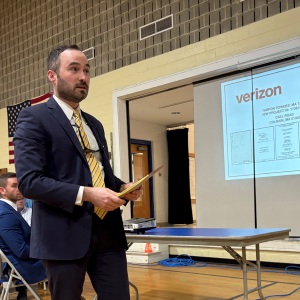 Colrain zoning board approves variance for Call Road cell tower
Colrain zoning board approves variance for Call Road cell tower
